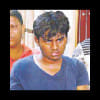Counter-militancy efforts
A very important aspect of countering the onslaught of the militants in Bangladesh, particularly the religious militants, is the active role of the imams of the three lakhs of the country's mosques. The participation of the imams - half a million in number - and religious scholars can offer an effective counter narrative to combat the extremists' efforts to garner support for their cause and recruit fighters to their rank and file.
We are, therefore, disappointed to find that the imams are not being fully utilised to that end in the government's annual training programme targeting this group, as has been brought out in a report appearing in this newspaper on March 2. Admittedly, the government is yet to formulate a substantive counter-terror study. But as an outcome of the several studies carried out as a preparatory exercise towards formulating an operational directive in this regard, the government is fully convinced about the indispensability of the imams in the successful campaign against the religious extremists.
However, it is apparent from the said report that what is perhaps missing is specific guidance to the imams on the subject of extremism and firm instructions to them on the manner and means of conducting the awareness drive against extremism and militancy, in their respective communities. In this regard the help of the country's Ulamas should also be sought in presenting a counter-narrative against the extremists.
It is quite possible that some of the imams could be psychologically well disposed towards the extremists. We hope the government will make all efforts to include them in the training process to expose to them the fallacy of their views.

 For all latest news, follow The Daily Star's Google News channel.
For all latest news, follow The Daily Star's Google News channel. 







Comments